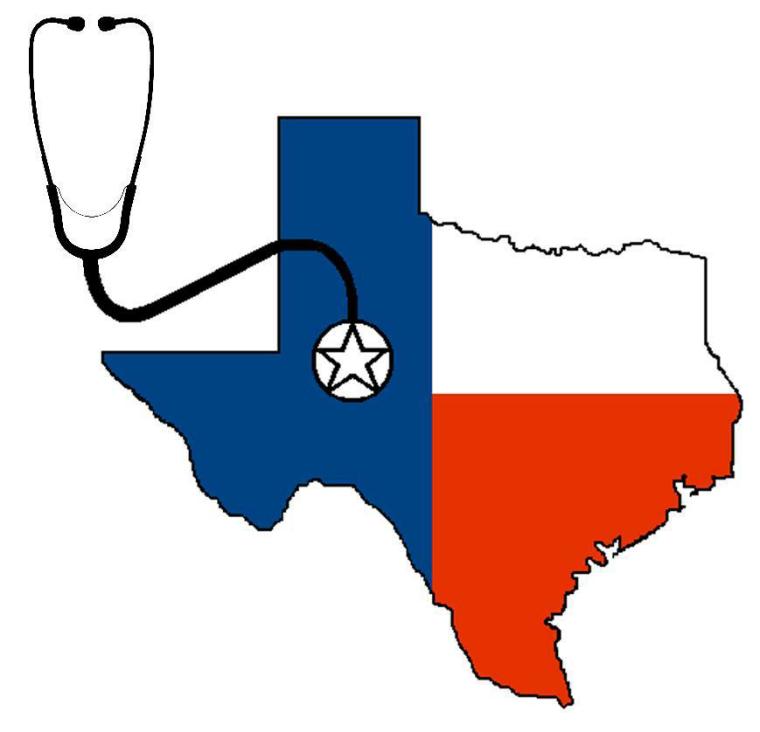Health Care Debate In the News
Place your photo here.
Unnecessary administration consumes 31% of U.S. health spending, double that of Canada (16.7%). The average overhead among private U.S. insurers was 11.7%, compared with 1.3 % for Canada's single-payer system and 3.6% for our Medicare (a single-payer program for the elderly and disabled).
Health Care For All Texas
HCFAT speaks out about the unnecessary difficulties found and abuses in the current health care system.
Get involved and work to solve the health care crisis. We have local, state and national action projects.
Recommended reading on the comples issues in health care reform. Don't be fooled by myths - your health is at stake.
Check Out
Advertise single payer and help us educate the public about the benefits of single-payer systems.
Houston Chronicle Op-ed
After 45 Years, Medicare Still Needs Support
Christine Adams, Ph.D., Statewide Secretary, Health Care for All Texas
06/23/2010
The Commonwealth Fund: Mirror, Mirror on the Wall: How the Performance of the U.S. Health Care System Compares Internationally, 2010 Update
by Karen Davis, Ph.D., Cathy Schoen, M.S., and Kristof Stremikis, M.P.P.
Despite having the most costly health system in the world, the United States consistently underperforms on most dimensions of performance, relative to other countries. This report—an update to three earlier editions—includes data from seven countries and incorporates patients' and physicians' survey results on care experiences and ratings on dimensions of care. Compared with six other nations—Australia, Canada, Germany, the Netherlands, New Zealand, and the United Kingdom—the U.S. health care system ranks last or next-to-last on five dimensions of a high performance health system: quality, access, efficiency, equity, and healthy lives. Despite having the most costly health system in the world, the United States consistently underperforms on most dimensions of performance, relative to other countries.
February 14, 2011
HR 676 “Expanded and Improved Medicare for All Act”
Rep. John Conyers
Rep. John Conyers Jr. (D-Mich.) has re-introduced his single-payer bill, HR 676 “Expanded and Improved Medicare for All Act,” which would create a publicly financed, privately delivered healthcare system that expands the existing Medicare program to all U.S. residents and those living in U.S. territories. Also, the bill would establish a “Medicare for all Trust Fund” to ensure funding.
January 6, 2011
NYTimes.com
"The Texas Omen"
By Paul Krugman
These are tough times for state governments. Huge deficits loom almost everywhere, from California to New York, from New Jersey to Texas. Wait — Texas? Wasn’t Texas supposed to be thriving even as the rest of America suffered? Didn’t its governor declare, during his re-election campaign, that “we have billions in surplus”? Yes, it was, and yes, he did. But reality has now intruded, in the form of a deficit expected to run as high as $25 billion over the next two years. And that reality has implications for the nation as a whole. For Texas is where the modern conservative theory of budgeting — the belief that you should never raise taxes under any circumstances, that you can always balance the budget by cutting wasteful spending — has been implemented most completely. If the theory can’t make it there, it can’t make it anywhere.
March 9, 2011
HealthDay News
"Americans Have Worse Health Than English Peers"
by Jennifer Goodwin
From birth through old age, Americans have poorer health than their British counterparts, a new study finds. Researchers used data on nearly 40,000 residents of the United States and 70,000 residents of England taken from nationally representative health surveys of the respective countries. After all the numbers were crunched, Americans had higher rates of nearly all chronic diseases and markers of diseases than people of a similar age in England. Those diseases and signs of poor health included: obesity, low HDL (good) cholesterol, high overall cholesterol, high C-reactive protein (a sign of inflammation), diabetes and asthma. American women had significantly higher rates of high blood pressure, stroke, heart attack or angina than English women of a similar age. For males, heart attack or angina is higher in the United States only at younger ages. High blood pressure is the one measure that was higher in England than in the United States at young ages among males. Taken together, the worse health of Americans by nearly every measure should be a wake-up call for the public and policymakers, said study author Melissa Martinson, a postdoctoral research associate in the Office of Population Research at Princeton University.
February 2011
"Neat, Plausible, and Wrong: The Myth of Health Care Unsustainability"
by Canadian Doctors for [Canadian Single-payer] Medicare
The “Sustainability” Myth. The assertion that Medicare is “unsustainable” has been repeated so many times1 that in some circles it has become accepted as indisputable fact. Critics2 of Medicare assert that the cost of our public health care system is growing at an alarming pace.
March 25, 2011
Brattleboro Reformer
Vt. House Passes Single-Payer Health Care Bill
by Chris Garofolo
MONTPELIER -- The Vermont House of Representatives passed a bill calling for a single-payer system Thursday afternoon, putting the state on a path to become the first in the nation to adopt universal access to health care. Lawmakers voted 92 to 49 after nearly two days of debate, including discussion on the floor until the early morning hours on Thursday.
Advocates hail the measure as the solution to control costs by reducing administrative overhead. However, critics said it leaves too much financial uncertainty and could hurt the economic growth in Vermont.
March 31, 2011
"State-Based Single-Payer Health Care - A Solution for the United States?"
William Hsiao, Ph.D.
New England Journal of Medicine 364;13
"The United States faces two major problems in the health care arena: the swelling ranks of the uninsured and soaring costs. The Patient Protection and Affordable Care Act (ACA) makes great strides in addressing the former problem but offers only modest pilot efforts to address the latter. Experience in countries such as Taiwan and Canada
shows that single-payer health care systems can achieve universal
coverage and control inflation of health care costs."
Sept. 8, 2011
"Texas healthcare system withering under Gov. Perry"
Noam N. Levey,
Los Angeles Times
"In the 11 years the Republican presidential hopeful [Rick Perry] has been in office, working Texans increasingly have been priced out of private healthcare while the state's safety net has withered, leaving millions of state residents without medical care.
Sept. 8, 2011
Commonwealth Fund Report
The Commonwealth Fund released 2010 data showing that 44% of adults aged 19 to 64 that were either uninsured or underinsured. This breaks down into 52 million adults were uninsured and 29 million adults were underinsured.





